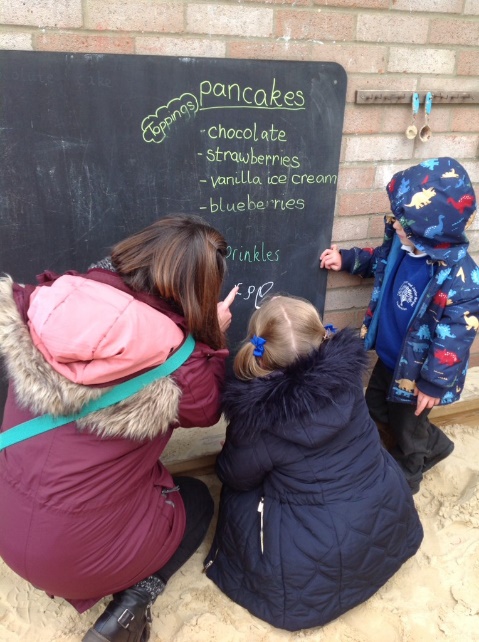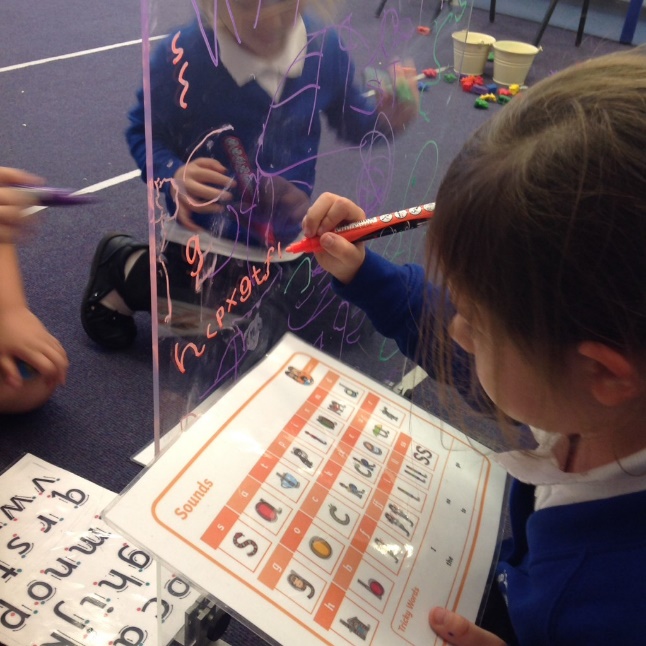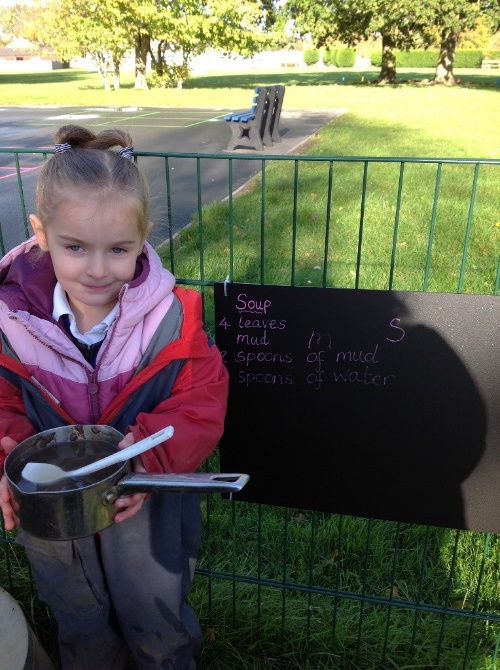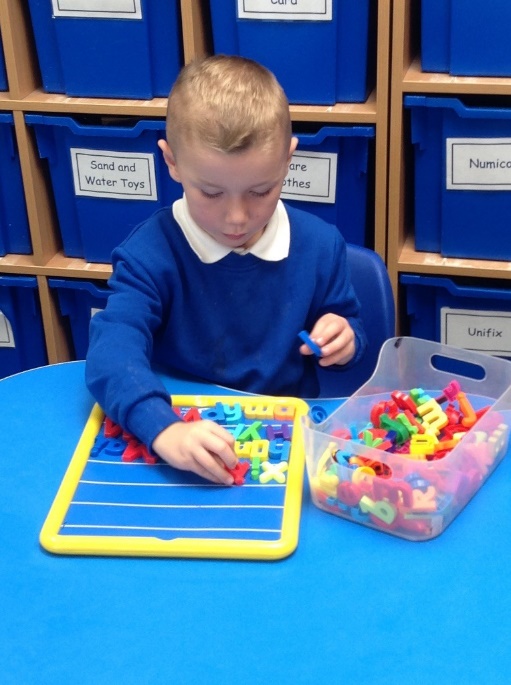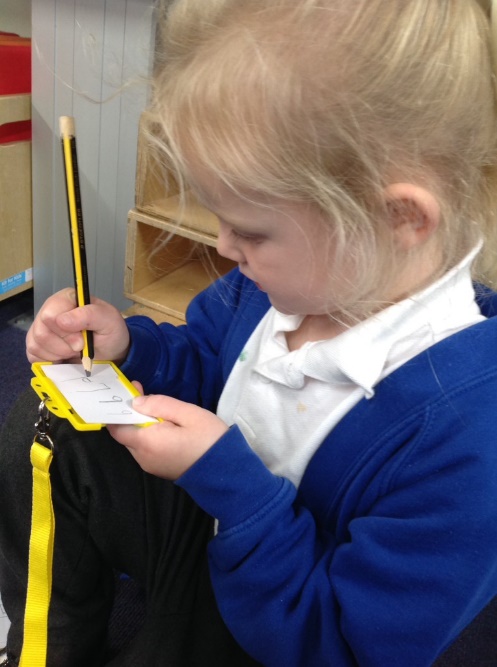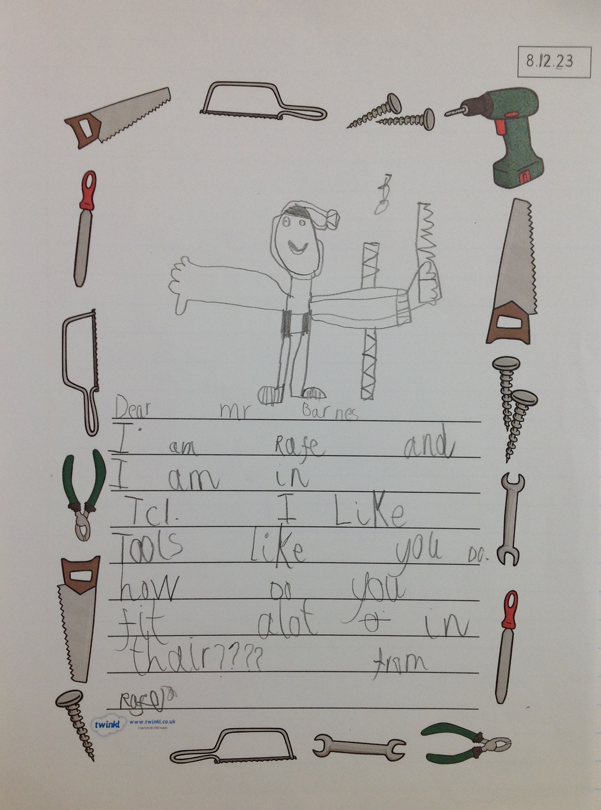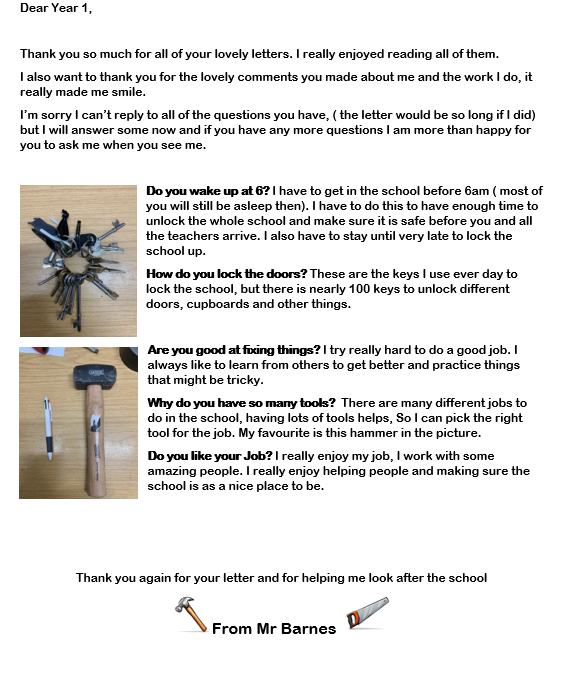Curriculum
In English teaching we aim to inspire children to be confident and excited readers and writers, who want to learn. This is done by a carefully planned curriculum, which has a range of starting points, and strategies and is linked to the meet the requirements of the Early Years Foundation Stage and National Curriculum.
Reading and Writing in EYFS
Reception children carry out a range of early Literacy activities as part of their daily teaching and learning. Children have access to writing materials and wide variety of resources that encourage high quality early literacy experiences. These include: opportunities for speaking and listening, reading, mark making, identification and use of phonic sounds, role play, small world play and activities to develop fine motor control. Early writing skills are also developed though activities such as story scribing.
The children are taught phonics daily, focusing on a sound a day. Toftwood Federation use the Twinkl Phonics reading scheme and Rhino Reader texts which go alongside our classroom teaching. Once children can recall 12 phonic sounds they are able to take a Rhino Reader or other book home. Children will be able to read these using sounds they know from their in class learning.
Reading and Writing across KS1 and KS2
In reading we aspire to foster a love of reading and stories. We do this by giving children access to high quality texts from a range of different genres. We have mapped our reading texts across the federation to ensure that children have access to genres such as archaic texts, poetry, myths and legends and many more! In every year group, pupils revisit these reading genres; this enables children to recall their prior learning of these genres, and develop further understanding of these genres. By doing this the children are able to use these different genres to inform their own reading preferences, and this leads to using the features in their own writing too. The books planned for across the federation offer challenge, aspiration and inspiration for all children, providing them with new, exciting authors, different writing styles and vocabulary the children may not be familiar with already.
Early reading is linked to the child's knowledge of phonics sounds. From EYFS to Year 2 the phonics teaching is mapped to ensure that children make good progress and build on their learning throughout KS1. The books the children take home to share with their grown-ups are linked to their current phonics skills to allow children to consolidate their phonics skills at that stage of their learning.
Phonics Play is also used at the Infant School, and the majority of the games can be accessed at home for free by visiting www.phonicsplay.co.uk
As children progress, we also use, in KS2, accelerated reader to ensure books link closely to the child's reading level and understanding. The teachers will check the outcomes from this resource to inform the planning for those children.
We are continually updating our reading resources, and library books to reflect the needs of the children. Each classroom has a wonderful reading corner to promote the love of reading throughout the federation. Regular opportunities are planned for the children to listen to a class story, read by an adult for enjoyment and pleasure. Adults guide the children into making appropriate reading choices. This ensures that the children are choosing high quality and ambitious texts that are above their 'pay-grade'.
The children use the VIPERS reading domains in every reading session, and these drive the explicit teaching of reading skills. These skills ensure that the children have a holistic approach to their reading comprehension and vocabulary. The children are able to identify which domain they are required to use to inform their answer and this has helped to develop the depth and breadth of the children's reading comprehension. In KS1 the children have actions to remember the skills needed for their comprehension skills.
The children at the Infant School have daily Guided Reading sessions focusing on a range of texts to inspire and develop reading skills across year 1 and year 2. These books are matched to the phonics skills taught at that stage in the year, allowing children to embed the phonics skills they have learnt. The children complete activities based on a particular reading skill, for example, comprehension, reading for pleasure and non-fiction texts while the teacher is reading with a group. Each week the children have reading for pleasure time where they can enjoy a range of texts individually, in pairs or small groups. Pupils also receive frequent opportunities to develop their fluency skills.
Each week at the Junior School, children participate in whole-class reading lessons linked to their writing focus or topic using a high-quality text. We have whole class reading lessons which explicitly develop fluency and comprehension skills. Using the reading domains, the children are given opportunities to practise their inference, prediction, summarising, explanation, retrieval and summarising skills. (VIPERS) The children learn new vocabulary from the texts we use which we then look for in their spoken language and their writing.
When writing in English and across the curriculum, we use a wide range starting points, including: drama, picture books, children's fiction and non-fiction, visitors, visits, pictures and video. By providing a variety of inspiring sources, the children are engaged and keen to write. The children write for a variety of purposes and audiences. They also develop their understanding of writing genres for non-fiction and fiction. Careful tracking is in place to ensure that pupils in both KS1 and KS2 have opportunities to write in a variety of genres. The skills of grammar and punctuation are embedded across the curriculum, and children apply these in their writing in all subjects.
Each classroom has a vocabulary dozen display for each unit of work so that we can immerse the children with specific vocabulary for that text and support their understanding of these words. It allows the children to learn and retrieve specific vocabulary to use in their own work.
From Key Stage 1, children learn spelling alongside their Twinkl phonics learning. In Key Stage 2, spelling is taught and linked directly to the National Curriculum guidelines for Statutory and Non-Statutory words. Links are also made to learn spelling patterns in reading and writing in all English lessons.
At the Infant School a Sound of the Week parent/carer spelling sheet is sent home to go alongside our Twinkl phonics learning in school. From Year 3 the children have individualised spellings and spelling patterns sent home every half term to embed these skills.
The federation use the Nelson Handwriting scheme to ensure consistency in letter formation and joins between all year groups. The children have handwriting sessions taught during the week to ensure that they are practising their handwriting regularly. Throughout year 1 and year 2 the children are developing their letter formation and starting to learn how to join some of their letters using horizontal and diagonal joins. At junior school there is an expectation that all children will progress and use joined handwriting.
In KS1 the children have daily English lessons which are planned to inspire the children's writing. The children write for a range of purposes, for example, work linked to a text, starting with a video clip or an educational visit. There is a focus on sentence structure and grammar to enable the children to write coherently in their written work in English and across the curriculum.
In KS2 the English work is mainly related to a high-quality text linking to their whole-class reading. This allows the children to delve deeper into the text and link their reading and writing skills.
















 They have also been practising their story writing skills and becoming much more independent, needing less help from an adult each time they write! Their topic has been ‘Around the World’ and the children have enjoyed writing about animals and habitats that they have been learning about.
They have also been practising their story writing skills and becoming much more independent, needing less help from an adult each time they write! Their topic has been ‘Around the World’ and the children have enjoyed writing about animals and habitats that they have been learning about.


 They have been applying their phonics skills through creating ‘wanted’ posters for the big bad wolf, drawing story maps and writing their own versions of the stories. The children have also practised retelling and acting out the stories, as well as playing with small world scenes.
They have been applying their phonics skills through creating ‘wanted’ posters for the big bad wolf, drawing story maps and writing their own versions of the stories. The children have also practised retelling and acting out the stories, as well as playing with small world scenes. 









